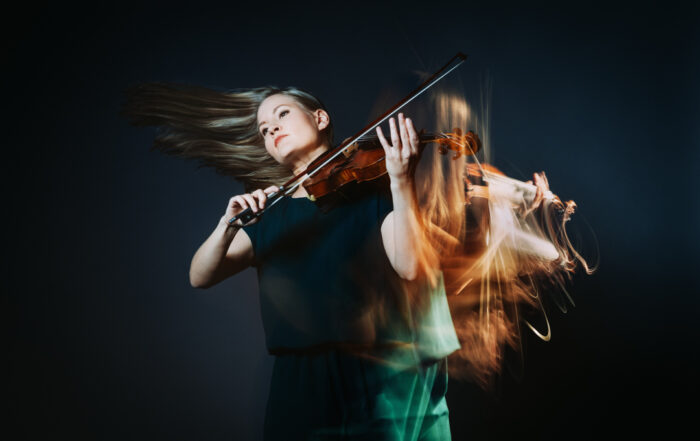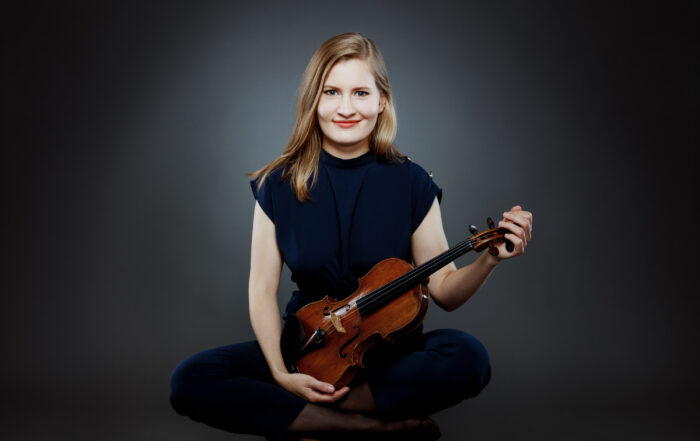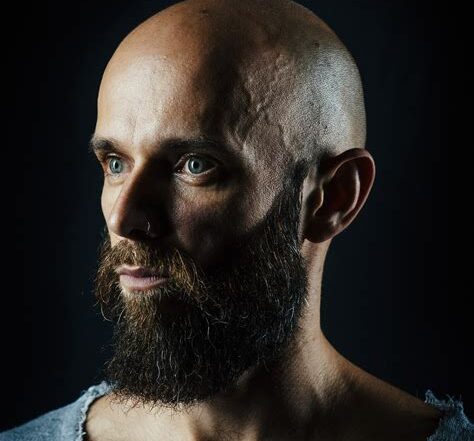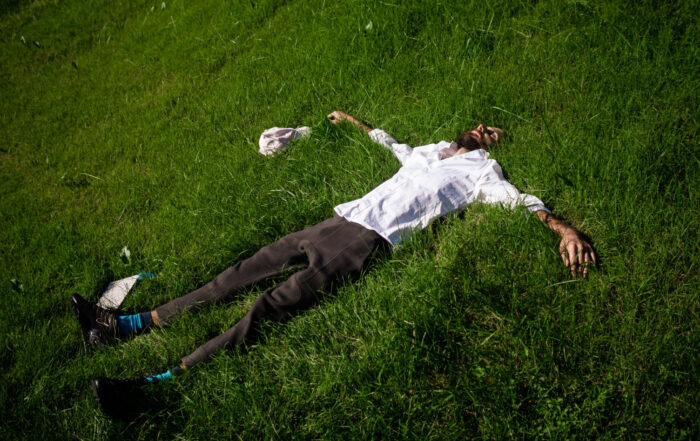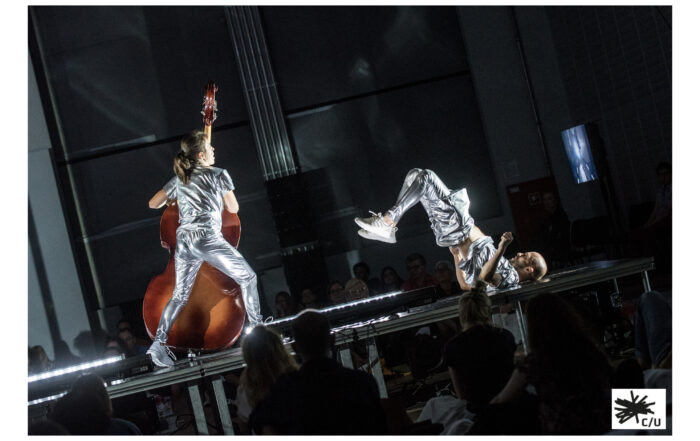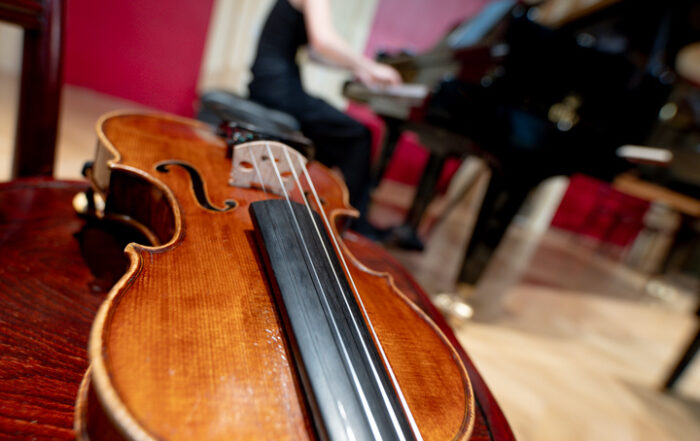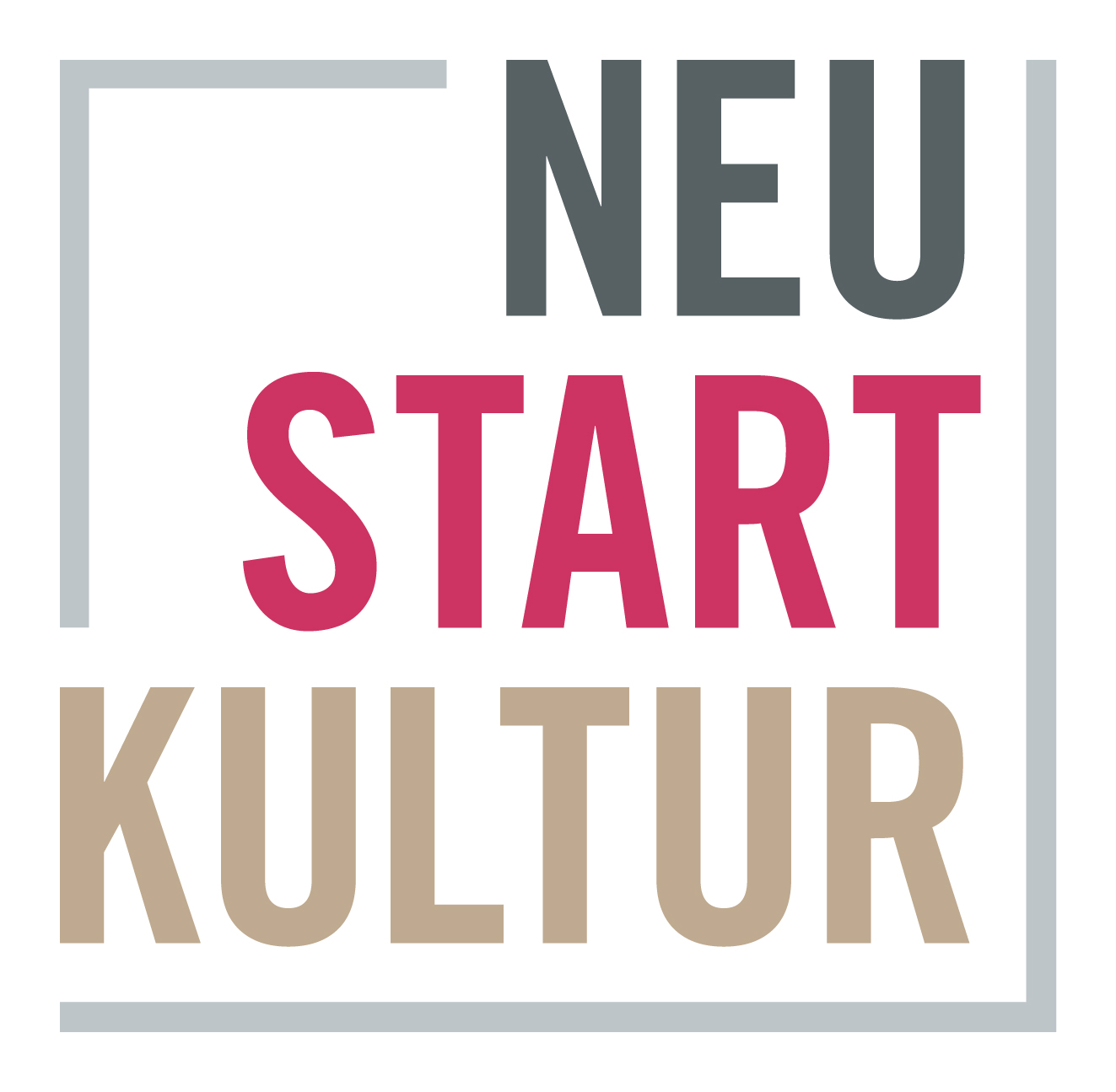Clara Ianotta
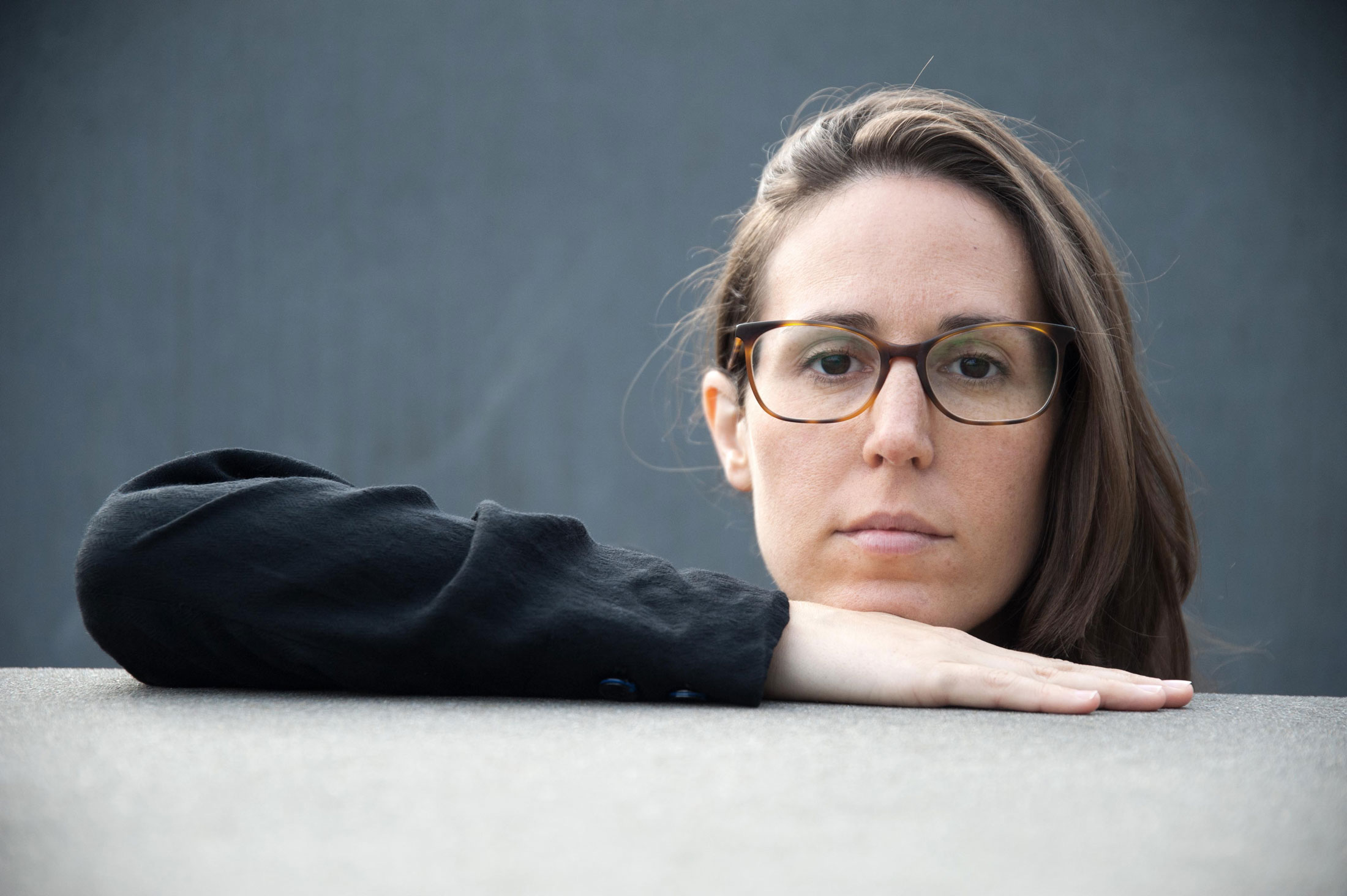
We have to adapt to the times
Minutiöse Spielanweisungen, genaueste Präpariervorgänge der Instrumente, fast skulpturale Formung der Musik – solche Bemerkungen begleiten Clara Iannottas Schaffen. 1983 in Rom geboren, studierte sie in Mailand, am IRCAM in Paris und an der Harvard University Komposition, bekommt Aufträge von großen Ensembles wie Arditti Quartett, Trio Catch und Klangforum Wien. Und die Bludenzer Tage zeitgemäßer Musik stehen bevor, deren Intendantin sie seit nunmehr sechs Jahren ist.
[Das Gespräch wird veröffentlicht, wie es geführt wurde – in englischer Sprache.]
It was 2014, when you became the Artistic Director of the Bludenzer Days of contemporary music and officially you would do it only until 2018. What happened?
Alexander Moosbrugger, who was the artistic director before me, had to write this big opera, so he asked me: „Do you want to take over for two years?” I said „Sure, of course!” But the board meant me to last for five years to really give my own identity to the festival. And then they extended it until 2020 and asked me to stay until 2023. It should be my 10th year as artistic director. But I did not anwer yet. It is a big pleasure, but also a lot of work because my colleagues in Bludenz are not musicians. It is a small festival in order to program it in the way I do it and this ist really hard work. But it also changed the way I think about music, also the music community. You know, you see, you look at the music community in a different way because you start to check other programs at the representation. And there this is an enormous amount of problems that our community has. I just started to wonder why they have not been addressed?
In which way does this artistic directory influence your work?
First of all, you start to understand the importance of small festivals when you direct one. They have an enormous importance because there is less pressure than at bigger festivals. So, as composer, you feel that you can take bigger risks, as there is no pressure not to “fail”. The most and best memories I have are of pieces that did not go well. Because I could really work up on those pieces how to change these things that I did not like and to ask myself: How can I make it better? How can I just address that thing that did not worked here? Of course, it also happens in big festivals. There is a lot of pressure, which I normally just do not care, but still you feel it even in the subconscious. The matter of Bludenz is to think about the relationship between composers and musicians. And because of so many requests of musicians and to preserve myself as composer I decided to only choose the composers I want to commission, and then I let them decide who they want work with,. They decide the entire project — which piece, for how many musicians, for which musicians, how long it will be, and so on. I take care of making their wish come true. This grows the bond between composers and musicians enormous and gives an impressive result: 90 percent of all the pieces that have been premiered in Bludenz since I have been there have been played so many times and made often the career of the composers like for example Michelle Lou with untitled three part construction or Sideshow by Steven Takasugi, which was commissioned by us and premiered all over the world by ensembles like Talea, Mosaik, Klangforum so many times.
Besides the practical aspect, becoming a curator also raised my attention and awareness about the problems in our new music community. Before, I was political as a citizen, but not as composer, and now I look different at the people I choose to work with.
Could you say that it is more effective or successful to share the progress and development of composition with the musicians? How does this change the result?
On the one hand composers are really composing for specific musicians, if they gave them some sounds and composers saw some techniques that really fit them. On the other beautiful hand the commitment is another one, if musicians want to work with you as composer, because there is already an established trust and you do not need to show how good you are. Even now at an age of 37 and I would say a good career, I still have to meet musicians that treat me like shit just because … I do not know why honestly. These practices make you loose confidence in yourself and this makes this job very difficult. We are making music for people, for musicians. But music is also about people. If I had to choose, I would always go with musicians that already trust me, but working with musicians you don’t know, who maybe challenge the way you write, could make you discover sounds, ways of notating your score, which you didn’t think of before. I think that the best quality a musician has, is to be curious and generous, and I love when composers and musicians get together and build something together.
Is the work or process or investigation of composing the main focus in Bludenz?
The goal is really to create relationships that push the boundaries of even just like imagining sounds, imagining time, imagining. Every year we have a competition for young composers. We are all together, we talk, we spend really five days all together and then normally one, two are chosen to write a new piece for the year after. This year one of the two composers that we choose comes from the US could not come because of this disastrous Covid-situation, but will try to come anyway. Because the best part of Bludenz is the people. Being there means exchanging informations and growing mentally.
And this is the bridge to your own composing, because you are interested in the live experience of music, which is not able to hold or to conserve …
Exactly. I think that they are just two completely different experiences. Being in a live concert means being in the music, the sound, the space. Music is an experience which goes beyond your ears. It is something that you can see and feel with your body. When my orchestra piece Moult was played at Wien Modern last year with Marin Alsop, several people came and told me afterwards they were feeling the piece here in their stomach. They were saying like it was really intense. But I do not want that you are at ease on your seat, while you experience my music. What I write is about death mostly and so I want that you feel it. Whenever you hear it on the CD, you can pause it if you are not feeling comfortable. But I want that you make the whole experience being there touching the sounds. For me music is something completely visual. It is something that you see, that you can touch. One of the artists that influenced me the most and that I am more inspired by is Christine Sun Kim. She is a sound artist and visual artists and she is deaf, since she was born, she cannot hear anything. She talks about “reclaim the ownership of sound” that, for example, in deaf culture, movement is equal to sound. So there are two different experiences of music: online, checking on Soundcloud for commissioning artists in Bludenz, and being represented and have space on Festivals like Bludenz.
That music cannot be reduced on online platforms is obviously, but you stretch this imagination to a haptical experience of music. Does this mean to you to investigate the possibilities in the smallest sequences, the smallest units of music?
As artistic director I try to forget for one second being a composer and try to trust my instincts. My job, as curator, is to discover voices. It happened that I chose composers whose music didn’t appeal to me enormously, at that moment, but I felt that there was something in their work that was speaking to me, and I knew I wanted to give them a platform to elaborate and develop that voice, that something I felt. I do not need to like all the pieces written by the composers I commission. I just need to see that there is something. And then, sometimes I can be wrong. It’s okay. Sometimes composers get it wrong – which is a beautiful moment when we all fail. I think, we should celebrate much more failure. Because it shows us the right path. Success does not, success is so dangerous because you understand what works. You need to understand what does not work, that you can just like create something different.
Your titles of the pieces are really touching, maybe because of the moment while reading it one have a picture inside. But then happens something just completely different in the music. How do these titles arise?
All the titles that I have since 2014, are taken from Dorothy Molloy, which is an Irish poet. She died in 2004, if I remember correctly, and she is probably the biggest inspiration that I have in my music. She wrote three very small collections of poems. And she was dealing with cancer at that time. And then she basically was dying and she was writing always about almost like how she would see that her body would die. I began to read these poems when I moved to Berlin because I started to have panic attacks at that time. And whenever-, and I was very afraid to die. And whenever I have a fear, I always read everything about it. It is like, last year I was attacked by birds while I was in Rome, and ever since I read everything. Now I know everything about birds. And so, when I had these panic attacks, I started to read thousands of books about death and experiencing death, just to understand other people’s views on death. Within the poems by Dorothy Molloy I felt such a bond. She is extremely cynical. And there is so much bodyness in her words. And these bonds completely changed the way I compose. And it it fits very well as I said, my music is about death. My titles, they do not necessarily have something to do with the piece. It is more like the image I had, while I was reading that poem — except Moult or Eclipse plumage. I have a list on my desktop with all my favorite points by the way. Moult for example, is also a poem of Dorothy Molloy, where she is talking about loosing hair because of chemotherapy. And she was associating this with birds while moulting, when they lost their feathers and they wait for the feathers to come back. What an image! And then I started to just check the natural or biological process of moult and asked what it meant for me as composer. I discovered that spiders get out of their bodies while moulting, so that there are two bodies: One that it is empty, and the new body, that grew. These are like two tangible temporalities! Past and present and future basically. But in front of me. Imagine every year that I grow, every year that I have a birthday, I would just get out of my body and you would have me every single year touchable. So I questioned: „How do I make tangible temporalities in music? How can I touch time?” In the same way. And that was really just reading the poem and then doing research. And then understanding. If then then the audience cannot find the link between the title and the music, I am fine with that.
Are natural phenomena some inspiration of your work?
Sometimes. For example for the whole cycle of Dead wasps in the jam jar 1, 2, 3 I was obsessed with the ocean, with the deep blue, which is the deepest layer of the ocean, where no light does get there. It cannot reach that. It is just too deep. But does it mean that there is no light? No. It does not. It just means that there are what I call “light bringers”. Because the fish developed some enzymes that allowed them to light up. There is an enormous amount of pressure, but there is so much light. This natural phenomenon is not my inspiration, it is the metaphor that allows me to understand and to describe the concept of the piece. So normally I try to find metaphors that allow me to navigate inside the concept in a less abstract way. So this natural phenomena helps me to give names to what I am trying to explore.
So the metaphors are the vehicles to get a concept, to get the structure …
Yes, or the concept of that I have for, like, the research that I am trying to do, transforms itself in a metaphor so that I find the words to explore it. And then I know what happens. I know how to navigate. I have the vocabulary now. And then I go back to the abstract realm of music. But first I need the words, I need to be able to describe it.
A lot of composers would say, they are speaking in music or music is their vocabulary.
In the past, I would never have do that, because I could just visualize sounds. But with the experience that I have now – I am 37 now – I can create sounds that are limitless. I mean, the limit is the imagination, but because I can create so complex things, it becomes much more difficult to understand them. And that is why I transform it into metaphor. In something that I can speak of, I can talk about this. And now can visualize it really well. And I can find a way of freely translated into music.
Maybe your music inside itself is so detailed, so fine, so divided in small sections, that is why you have to find some vocabulary to transmit, to translate, to make some possibility to understand.
In the moment in which you start to put a metaphor, that metaphor allows you to even find more details. Because you start to see things and then you are actually enriching the abstraction, that the sound or the energy or whatever you have inside that you want to express. When you start to be able to give words to the thing, or like to really see it, then you start to add details and then it becomes really a word. For me, this is what sound is alive.
So you have to write your notes really particularly, really precise, really fine …
This is why musicians hate me most of the time. But it is almost like a contra sense in the sense that I have a mental disorder that is called OCD. That is why around me everything has to be perfect. But what appeals me in music and visual art, are the imperfections, which make each work so unique. In music I like very, very dirty things. And the problem is that as an obsessive person like I am, dealing with imperfections is extremely hard. And so, within the years, I developed a kind of writing there is extremely detailed, even how you have to put your eyes basically. But at the same time these techniques that they have to play are so difficult and instable. And above all, they will never give you this exact same result every single time you play. So, what I do is that I try to play with unstableness. I have tried to put myself as an obsessive person, not at ease. I want to feel myself involved. I really want that I note exactly the sound they want on the paper. And I can tell you exactly the minimal work that you have. But the techniques I use do not allow you this perfection, there is just no way to get the same result every single time. And so, it is a win-win-situation for me. I can control the shade of the color.
The shape, I think, because music could not be that precise. With every piece you are creating something like a sculpture.
Yes, exactly. But a sculpture is a bit difficult to accept because it does not move.
Ok, not really a sculpture, but something more shaped, then only abstract sound, something more optical.
Yes. I mean, there is a lot of attention on sound. So every single sound is very, very, very detailed on my scores, I need to be extremely precise. But my music is more like an environment and a flux of energy, something that moves. When you put a dress inside the water, it starts to change shape constantly. That is about my music, but a bit more darker like horror things.
In other contexts you also teach …
Yeah, I was teaching in Basel at the Musikhochschule last year and I will teach in 2021 at Impuls in Graz, in Darmstadt and others. And because of the corona virus, I started a program in which I teach free of charge 12 hours per month to low income composers or people from marginalized communities. Nonwhite mostly with priority to female or non-cis-male and nonwhite composers. This year actually I am teaching also teaching in Bludenz. I love to teach. It is really a lot of work and time because I really like to be generous in my teaching and this is difficult. But I do not teach in an institution, like a permanent job in an institution. But teaching is becoming more and more part of my daily routine.
And what do you want to teach?
Just composition. Teaching to me is understanding the person that I have in front of me and trying to help their vision and influence their way of composing by putting my experience at a serve. But I am not going to impose my own vision.
Like in Bludenz. There your focus is to engage the composers working process. Is this your vision for Bludenz?
Look, I did not know this festival when they asked me. Just Chaya Czernowin, she was my professor in Harvard, could tell me about, but no young people knew it. So I started to think about, how I could create a reality for young people also. The vision of Bludenz is about inclusiveness, is about really trying to create the music community that I like the most. Georg Friedrich Haas told me that he programmed once one of the modern Feldman’s string quartets, four hours. And in the whole Remise were just him and for firemen. But the firemen were there because they had to be there! Als Alexander Moosbrugger told me: “Sometimes we have just five people in the audience.” Now we have many more people to come. My vision was really try to create the enriching reality that everybody knows about this special place where crazy things take place. And then on the other side, what I have been working on, what I realized while I was working on Bludenz is that I want to also address the problems that our new music community has, that I think that they are systematic and they are just stupid and ignorant. Because as I always said, the lack of female representation for example, is completely because of artistic director ignorance. It is not about quality; it is about ignorance and about not doing the job they are paid for. The other problem is not accepting other kind of aesthetics. The other problem is diversity in the sense of race, for example, which is absolutely related also to education and our privileged situation. And if I cannot change the form inside an institution for example, I have to find other ways to do it, from another angle maybe. Bludenz is one of such another way.
Does Corona, mismatch something for Bludenz? Because all festivals I know were postponed or did not happen …
For now we are in good shape in the sense that we check every day the situation and so far almost all of the musicians could come, I think there is just a few exceptions. We have to see and then to make decisions. I think that in one way or another, we will have the festival. Maybe it is going to be half-live, half online. But I think that it will be really a pity if we would just cancel it, because pieces have been written. We have to adapt to the times.
And your own works? Your own shows? They are postponed also?
Yes, so many. I think that next week I am going to Vienna with Klangforum (Wien, Anm.). This is the first concert I am going to see. I mean since March …
—
Mein Kammermusikpartner ist das Publikum
Erst kürzlich erhielt sie den „Best Practice Award“ für die erfolgreiche Zwischenpräsentation ihrer PhD-Studien an der Kunstuniversität in Graz und wird im Februar beim Impuls-Festival als Solistin ebenda gastieren: Violinistin Judith Fliedl. Ihr berufliches [...]
Ich bin ein Klangarbeiter
Wojtek Blecharz ergründet das Zusammenspiel von Zeit und Raum und verbindet dabei virtuos und zwanglos benachbarte Felder wie Klangskulptur, Performance, Klanginstallation und Konzert. In seinen komplexen musiktheatralen Werken verarbeitet der Komponist Spezifika von Aufführungsorten, [...]
Ich muss nicht jedem gefallen
Morgana Petriks Handeln steht fundamental auf den zwei Beinen Selbstermächtigung und Selbstverständnis. Als langjährige Vorsitzende der ÖGZM hat sich die Komponistin in die Geschichte der österreichischen Gegenwartsmusik eingeschrieben, der Verein feiert heuer sein 75. [...]

